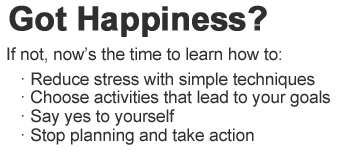 During a reunion of friends I hadn’t seen for a year, we met over dinner and each shared our progress toward personal and professional goals. In the process of sharing events of her year one friend disclosed that she’s motivated by trying to prove to her family that she is as smart as her high-achieving “specialist doctor” brother.
During a reunion of friends I hadn’t seen for a year, we met over dinner and each shared our progress toward personal and professional goals. In the process of sharing events of her year one friend disclosed that she’s motivated by trying to prove to her family that she is as smart as her high-achieving “specialist doctor” brother.
When she confessed that this stems back to childhood she recounted some of the verbal attacks and labels she has endured at the hands of this brother even now (although they are both highly educated professionals.) The rest of us at the table were horrified, visibly shaken and some teary-eyed to hear and see the pain she has endured. By contrast, she was surprised at our reaction. What was dysfunction with a capital D to the rest of us was normal family relations to her.
In a Psychology Today article, Peter Kramer discusses the concept of normal from two angles
As the experience of mid-century shows, we can hold two forms of normality in mind—normal as free of defect, and normal as sharing the human condition, which always includes variation and vulnerability. We may be entering a similar period of dissociation, in which risk and pathology become separated from abnormality—or an era in which abnormality is universal and unremarkable.
We are used to the concept of medical shortcomings; we face disappointing realizations—that our triglyceride levels and our stress tolerance are not what we would wish. Normality may be a myth we have allowed ourselves to enjoy for decades, sacrificed now to the increasing recognition of differences. The awareness that we all bear flaws is humbling. But it could lead us to a new sense of inclusiveness and tolerance, recognition that imperfection is the condition of every life.—Peter Kramer
I always equated normal with boring, so it was never my goal. According to my kids and friends I succeeded. As a matter of fact, my kids don’t mind reminding me from time to time with “You’re weird.”
“Good!” I think to myself, “I’m still on track.”
One of my favorite Twilight Zone TV episodes shows a scene of a doctor and nurse standing in a darkened room at the bedside of a patient whose face is fully bandaged. She has undergone experimental surgery to correct her disfigurement so she will be allowed to remain in the State. This is the eleventh and final surgical attempt to make her beautiful. If this doesn’t work she’ll be cast out to live in a village with other freaks.
As the doctor and nurse remove the bandages, the doctor comments to the nurse that Janet, the patient, is a beautiful person no matter what a face looks like. When they remove the last layer of bandages and Janet is revealed as a beautiful human female, the audience is confused for a moment. When the staff turns on the lights we see that all of the staff have pig-like faces.
Fearful over her fate, Janet runs out into the hall , past a State broadcast on complete conformity. She runs into a room where she finds herself face-to-face with a horrifying sight, a handsome human male, Walter Smith. The episode ends with Walter taking Janet to the village where others of her kind live.
Normal is very much what we decide it to be.
What we accept as normal can change as our goals, desires, and situations change. I believe that the source of some of our unhappiness is discontent with what has become normal in our lives and failure to do anything about it. It’s a proven fact that to make changes in our lives we have to adopt new habits. That means resetting whatever was once normal for us.
The ever popular goal of losing weight, for example, requires not just eating less and exercising more, but adopting a new lifestyle. If sleeping in and stuffing your face with donuts is your normal, it’s likely you will need to create new behaviors which when repeated over and over become your normal that will help you reach your weight loss goal.
Part of what lead to the demise of the Rorschach test (also known as the Ink Blot Test–see one of the images above) was the suspicion that the results of this projective personality test told us more about the examiner than the subjects.
Perhaps it’s time to recognize, as Peter Kramer proposes, that we let go of the myth of normality. It may be a useful construct for intellectual discussion and research, but in our daily lives recognizing and accepting imperfection in ourselves and others is one key to being happy. The next key, of course, is giving ourselves permission to change what we consider normal as we reach for new goals and rethink what relationships and experiences we want as part of our lives.




 Follow
Follow


I definitely think my normal is different from many other normals 🙂
After visiting your blog, I agree. But that’s a good thing.
Ha! I am many things, but normal is not one of them. I am at peace with that.
That’s great You’re in good company. Welcome.